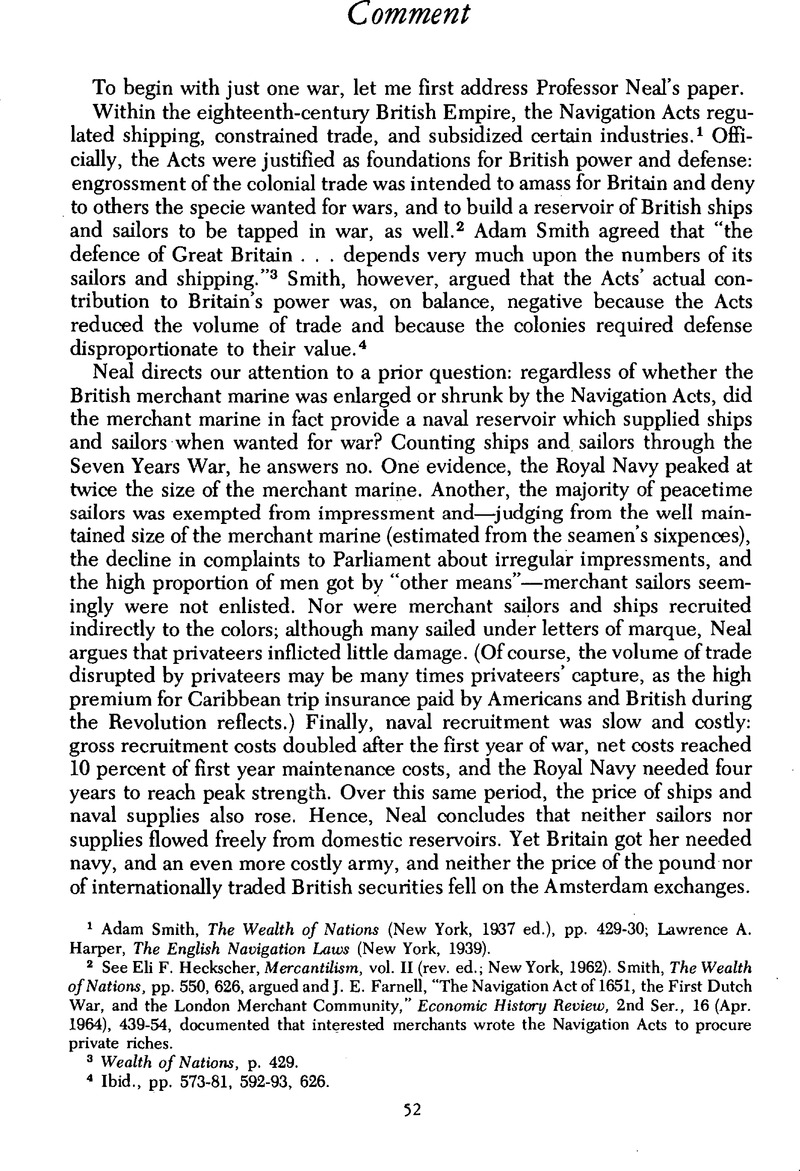No CrossRef data available.
Article contents
Comment
Published online by Cambridge University Press: 11 May 2010
Abstract

- Type
- Papers Presented at the Thirty-Sixth Annual Meeting of the Economic History Association
- Information
- Copyright
- Copyright © The Economic History Association 1977
References
1 Smith, Adam, The Wealth of Nations (New York, 1937 ed.), pp. 429–30Google Scholar; Harper, Lawrence A., The English Navigation Laws (New York, 1939).Google Scholar
2 See Heckscher, Eli F., Mercantilism vol. II (rev. ed.; New York, 1962)Google Scholar. Smith, The Wealth of Nations, pp. 550, 626, argued and Farnell, J. E., “The Navigation Act of 1651, the First Dutch War, and the London Merchant Community,” Economic History Review, 2nd Ser., 16 (Apr. 1964), 439–54CrossRefGoogle Scholar, documented that interested merchants wrote the Navigation Acts to procure private riches.
3 Wealth of Nations, p. 429.
4 Ibid., pp. 573–81, 592–93, 626.
5 Deane, Phyllis and Cole, W. A., British Economic Growth, 1688–1959 (2nd ed.; Cambridge, 1969), pp. 85–86, n. 2.Google Scholar
6 Goldin, Claudia G. and Lewis, Frank D., “The Economic Cost of the American Civil War: Estimates and Implications,” this Journal, 35 (June 1975), 229–326.Google Scholar
7 See my “Economic Burden: Spark to the American Revolution?” University of Chicago mimeo (Aug. 1976).




